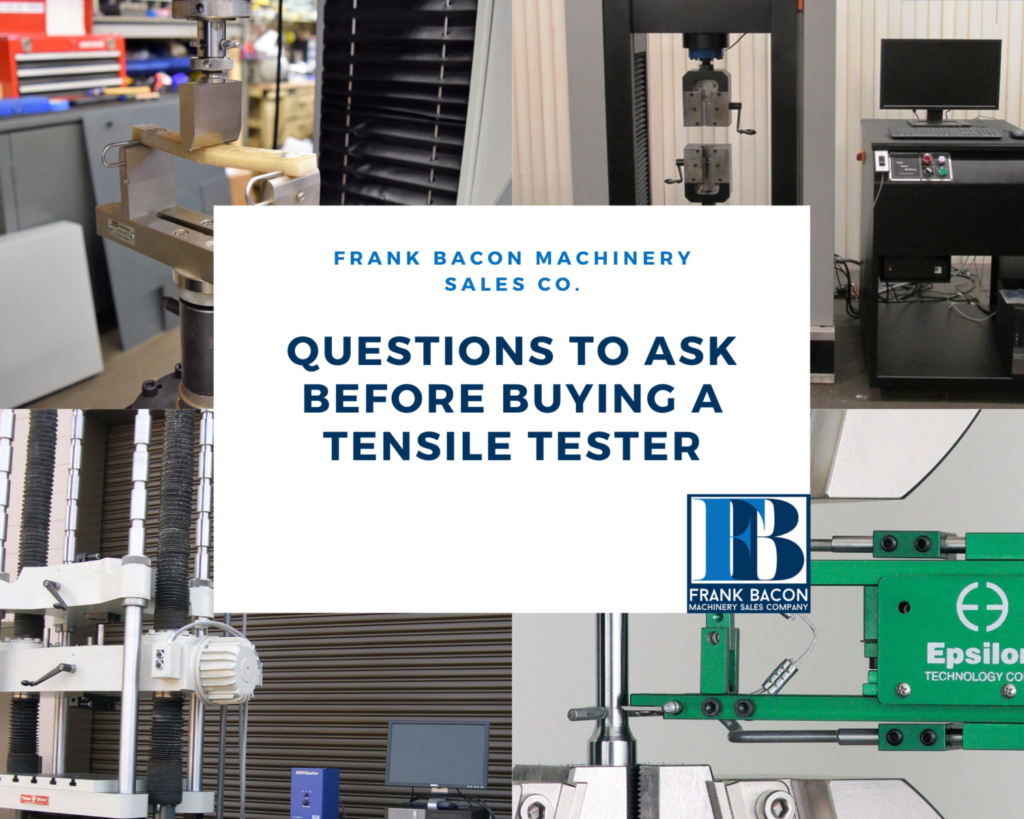Basic Questions to Answer Before Purchasing a Tensile Tester

1. What type of testing are you trying to perform on a Tensile Tester?
Will you be performing tension, compression or a combination of both on a tensile tester?
The majority of tensile testers (Universal Testing Machines) can test in either loading direction.
2. Will you be testing to any ASTM, ISO or other industry specification?
There are thousands of industry standards and specifications that require the use of a tensile or compression testing system.
What are you specifications or testing requirements?
Here are some common ASTM standards to consider: ASTM D412, ASTM E8, ASTM C39, ASTM A370, ASTM D63, ASTMD790, ASTM D638.
3. Are you trying to test a product or the material properties of a standard specimen?
If you are testing the material properties will the specimens be round or flat and what are the dimensions (diameter, width, length, thickness)?
What are the estimated material properties of the specimens?
If you are testing a product what is the overall size of the tested product? How will the product be held into the Universal Testing Machine?
4. What is the minimum vertical and horizontal opening required for your fixturing and test specimen?
There are hundreds of different test setups, grips, fixtures, tooling, holders and accessories that need to fit within the testing area of a tensile tester to complete your desired test.
Keep in mind the space constraints for your desired testing requirements when selecting the correct machine for your needs.
5. Are there any additional specifications you will be looking for?
What type of information are you looking to get at the end of the test? Yield, Ultimate Tensile, Percent Elongation, Maximum Force, Maximum Stress, Displacement, Etc?
Contact Frank Bacon to get a custom testing system!
Please complete the questionnaire below to get started. Download the below questionnaire and email it to a Frank Bacon Machinery Sales Engineer
Product Selection Questionnaire


